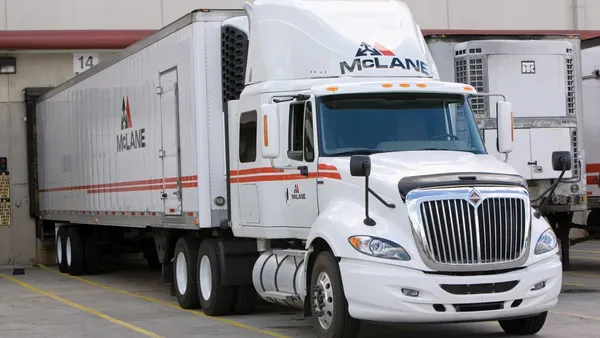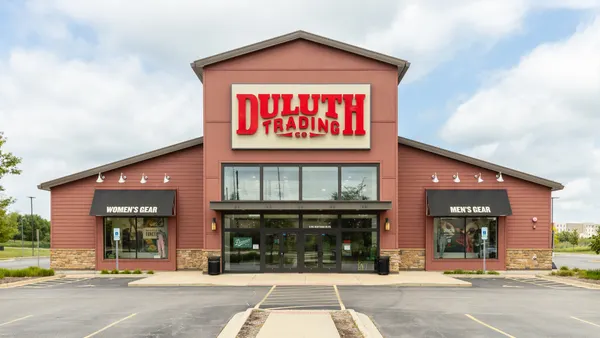NASHVILLE, Tenn. — Collaboration took on a whole new meaning in the last two and a half years as disruption and uncertainty plagued companies' day-to-day supply chain operations.
Supply chain leaders at the CSCMP Edge 2022 conference on Monday said they have leaned into enhanced cooperation with suppliers and distributors in an effort to keep operations running. They’ve also invested heavily in new technology to improve inventory visibility and to retain talent in a tight labor market.
"It all comes back to people and a lot about the importance of good information," Sara Thomas, vice president of inventory management operations at Target, said at the conference. "Good information requires collaboration and that collaboration can't happen unless you have trust, which ultimately comes back to people and relationships."
Thomas was one of seven supply chain leaders who spoke at the Women Leaders Forum and shared their perspective on how to navigate supply chain disruption. Several leaders said collaboration and cooperation had helped them weather uncertainty during the pandemic. Here’s four ways how.
1. Collaboration can enhance inventory visibility
Collaboration for retail comes down to "the importance of inventory visibility and how that has evolved and how we've had to change the data we look at and that we share," Thomas said.
Instead of looking at where raw materials for finished goods are, she said new questions evolved to "where's my storage capacity?" and "Where's my throughput capacity, whether that be human powered or mechanical?”
“And that approach is just taking a very different type of collaboration and transparency, because we're not just talking about the inventory anymore. We're talking about the operations," Thomas said.
2. Companies prioritize strong communication with suppliers
Dawn Green, vice president of North America procurement at Schneider Electric, said that one area in which her company invested in more over the last few years has been in building greater trust with suppliers. Schneider worked to simplify communication with suppliers to enhance operations.
"We've really taken on a new approach of collaboration and working together," Green said. "And how do we build on that to simplify things for them, make sure they understand where we're headed and where do we align in our roadmaps and our vision."
3. Investments in technology pay off
As the pandemic created skyrocketing demand across much of the market, companies like Intelligent Audit used technology as a way to improve communication and allow for faster collaboration across the company to fulfill orders, CEO Hannah Testani said.
"You know, what's interesting to me about what COVID did is it brought 2030 volumes to 2020," Testani said. "And if you think about what we would have all invested with those 10 years, it would have been a big emphasis on technology to be able to collaborate better and innovate better. So I think that's what we really need to focus on today."
The ability to invest in new technology comes in large part from the growing availability of new products and services, said Truckstop.com CEO Kendra Tucker.
"Really since supply chain became "sexy" in 2021, there's been this flood of money that has come into the space that has created all of these new technology and trends and so I'm always looking at all the different software options that are available for shippers, 3PLs, for carriers to make their lives easier," Tucker said.
4. Open communication can help companies retain talent
As remote work has become more widespread, supply chain companies are leaning into the trend and finding ways to make their work environments more flexible.
Kristi Montgomery, vice president of innovation, research and development at Kenco Group, said the company has prioritized open communication with its employees to allow for flexible schedules and a hybrid working model. The logistics company allows clerical employees to work a hybrid schedule, and the company has also implemented the use of a mobile app to easily organize workers’ schedules.
For Truckstop.com, Tucker said the company has kept its approach as a virtual business as a key strategy to attract new talent.
"Part of what we do as a target to attract talent differently is we've remained very flexible in our approach," she said.













